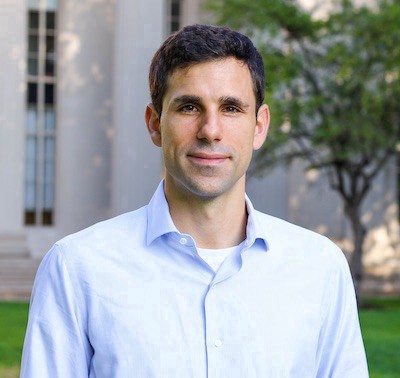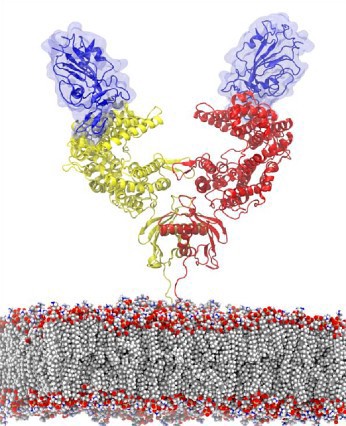When Penn Health-Tech announced its Nemirovsky Engineering and Medicine Opportunity, or NEMO Prize, in February, the center’s researchers could only begin to imagine the impact the looming COVID-19 pandemic was about to unleash. But with the promise of $80,000 to support early-stage ideas at the intersection of engineering and medicine, the contest quickly sparked a winning innovation aimed at combating the crisis.

Judges from the University of Pennsylvania’s School of Engineering and Applied Sciences and Perelman School of Medicine awarded its first NEMO Prize to César de la Fuente, PhD, who proposed a paper-based COVID diagnostic system that could capture viral particles on a person’s breath, then give a result in a matter of seconds when taken to a testing site.
Similar tests for bacteria cost less than a dollar each to make. De la Fuente, a Presidential Assistant Professor in the departments of Psychiatry, Microbiology, and Bioengineering, is aiming to make COVID tests at a similar price point and with a smaller footprint so that they could be directly integrated into facemasks, providing further incentive for their regular use.
“Wearing a facemask is vital to containing the spread of COVID because, before you know you’re sick, they block your virus-carrying droplets so those droplets can’t infect others,” de la Fuente says. “What we’re proposing could eventually lead to a mask that can be infected by the virus and let you know that you’re infected, too.”
De la Fuente’s expertise is in synthetic biology and molecular-scale simulations of disease-causing viruses and bacteria. Having such fine-grained computational models of these microbes’ binding sites allow de la Fuente to test them against massive libraries of proteins, seeing which bind best. Other machine learning techniques can then further narrow down the minimum molecular structures responsible for binding, resulting in functional protein fragments that are easier to synthesize and manipulate.

The spike-shaped proteins that give coronaviruses their crown-like appearance and name bind to a human receptor known as ACE2. De la Fuente and his colleagues are now aiming to characterize the molecular elements and environmental factors that would allow for the most precise, reliable detection of the virus.
The proposed detection system would use dozens of tiny, 3D-printed electrodes seeded with fragments designed to bind to the SARS-COV-2 virus’ spike proteins. These electrodes would then be deposited on conductive paper, onto which a sample of respiratory droplets could be introduced. The electrodes’ overall resistance would go up as more viruses bound to the fragments, meaning the relative concentration of the virus could be instantaneously measured with a potentiometer.
Existing virus tests are based on assays of genetic material, which take more than 24 hours, require much more expensive equipment and reagents, and need to be conducted by trained technicians.
“With our proposal, a person could go to a testing site to see if their mask is infected, then follow-up with another kind of test if so,” de la Fuente says.
De la Fuente will use the NEMO Prize funds to begin developing the prototype for this paper-based coronavirus test, as well as other “blue sky” ideas for detecting pathogens, such as antibiotic-resistant bacteria. More research will also be required to further miniaturize the system so it can be integrated into facemasks. Even without that advance, however, larger versions where samples were provided at dedicated testing sites would still be significantly faster and less expensive than current methods.
“The COVID-19 pandemic had a tremendous impact on the NEMO Prize,” says Glory Durham, Associate Director of Penn Health Tech. “César’s proposal is an opportunity to develop a transformative technology that is sensitive and scalable. It is an excellent illustration of Penn Health-Tech’s mission to catalyze early stage innovation in medical technology across Penn.”
“César’s innovative approach is exactly the type of thinking we all hoped to inspire with this program,” says Ofer Nemirovsky, the member of Penn Engineering’s Board of Advisors whose gift to Penn Health-Tech enabled the NEMO Prize. “I’m gratified and excited that the first award will be used to help meet the historic moment we are all experiencing.”
